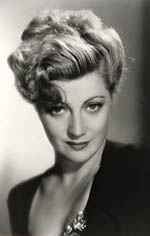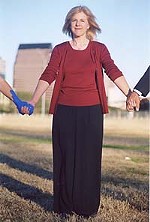Articulations
The past few weeks have seen the passing of Johnny Torrez, Dana Ravel, and Clarence Brisco, three individuals all distinguished by their support of and advocacy of artists besides themselves.
By Robert Faires, Fri., Feb. 23, 2001
The past few weeks have been tough ones for the local arts scene in that they've seen the passing of three individuals all distinguished by their support of and advocacy of artists besides themselves.
Johnny Torrez, the self-proclaimed "Commissioner of Comedy," was a funny man's funny man, not just because he embodied a sort of classic approach to stand-up, but because he looked out for other comics, taught them what he knew, and made an effort to get their careers off the ground. Torrez died February 14 at the age of 51. He's remembered by the comics who knew him best in a feature by J.C. Shakespeare in this issue.
Clarence Brisco wanted art to be a part of everybody's life, and he worked toward that end, first as an employee of the city of Austin and then as a citizen activist in Round Rock, where he moved in 1997. Brisco was a painter and, for 16 years, an arts administrator with the city, first overseeing the cultural programs at the Dougherty Arts Center, then serving as curator at the George Washington Carver Library and Museum. During his tenure, Brisco founded the Austin Mural Program, which sought to provide a creative outlet for at-risk youth. It was the kind of project close to his heart -- art for, of, and by the people -- and it was his passion for such projects that led him to "set a fire," as one Round Rock City Council member put it, under the municipal government of the town to which he retired. Brisco believed that the city of Round Rock should have its own cultural commission, so he pushed for it and was making headway when he succumbed to a seizure at his home earlier this month. He died on February 6 at the age of 67. Brisco exhibited his art locally for many years, and his paintings were shown throughout the United States and even in Tokyo, but his artistic legacy must also include his efforts to help others create. He is survived by his wife Delores; his sons Darryl, Lenny, and Bobby; his daughters Roslyn Dove and Teri Fleming; and nine grandchildren.
Dana Ravel was a longtime champion of emerging artists, especially from Latin America, and she showcased their work through two local galleries: Galerie Ravel, which she and her husband Gene opened shortly after they moved to Austin in 1976 and which they ran until Gene's death in 1989; and Ravel Fine Art, the gallery she opened in Davenport Village and in cyberspace less than a year ago. In a story in these pages last year, Ben Willcott wrote that Ravel "brought Latin American artists to Austin at a time when only a handful of galleries anywhere had such vision. Several of the painters she began representing then are now highly collected in Europe and the U.S. Ravel had a vision -- which included defying labels in order to bring top-quality, undiscovered artists to Austin." Commenting on the opening of her newest art space, he added, "She's as committed as ever to sharing new talent with local audiences." Ravel died of cancer, which she had been fighting for several years. In 1996, it had forced her to close a gallery she had opened in Dallas upon moving there three years earlier. Before her death, she requested that flowers be sent to Hospice Austin's Christopher House to share with the patients there and that contributions be sent to the National Foundation for Transplants: 1102 Brookfield, #200, Memphis, TN 38119; the Blanton Museum of Art Acquisition Fund; Hospice Austin; or a nonprofit of your choice. She further requests that her friends "take a moment to express your love to those close to you, and to live life."








